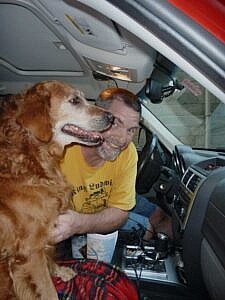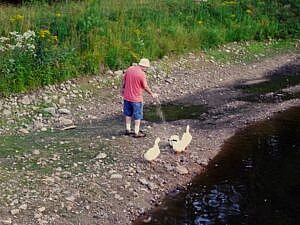We meet the 57 year-old not in Louisville, but on the East Coast. He lives in New Hampshire today, is president of the local Swiss-American Club and also a member of the Swiss Club in Boston. And a “Ländler” fan: that he takes his accordion to the conversation, is not surprising. And despite his Swiss roots and a lot of sympathy for the country, he has no Swiss passport. “I tried again and again to get one. But since my ancestors had made no applications for themselves and their descendants based on Swiss citizenship, I haven’t been able to - but I have not given up the hope that I will receive the red passport one day.”
The love of Switzerland is striking: the shepherd’s shirt worn by Mike Kaelin makes him look like a Swiss alpine farmer. And that he knows Switzerland, we will soon learn. A few years after studying engineering in the US, he lived in the Zurich Oberland for five years in the late 80s and early 90s and worked as an engineer at KABA, a security systems and locks company in Wetzikon. “I really wanted to get to know my roots.” During this time, he did not only get to know the country and its people, but also Swiss German: “To speak the language of my ancestors is a great need for me.”
He also improved his accordion playing, which he had learned as a child from his father, Gilbert Kaelin, in Louisville. “Again and again, during my Swiss years, I played with musicians in various ‘Ländler’ formations. And Willi Valotti, whom I met at a ‘Stubete’ (a kind of open-mic night for folk musicians), became my music teacher.” Every four to five years he tries to travel to Switzerland for one or two weeks. “I have to feel the Swiss spirit again.”
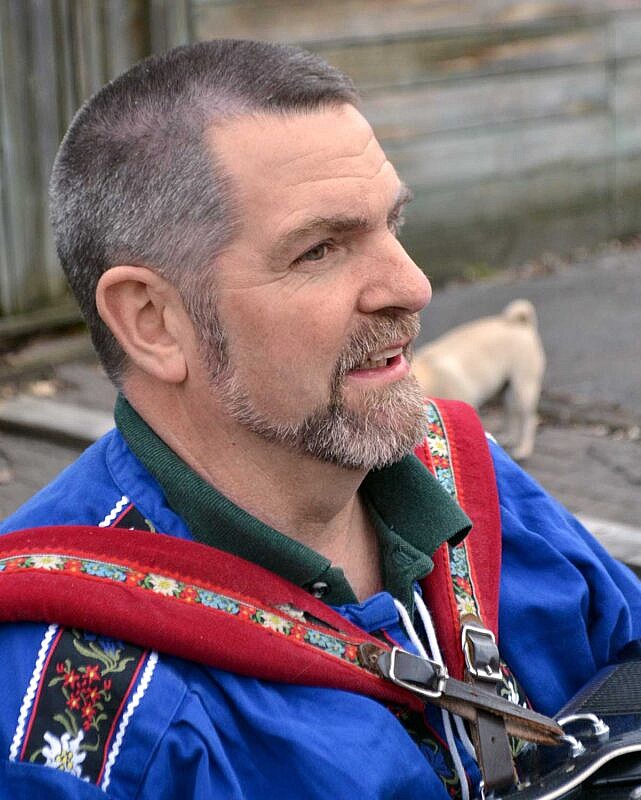
Then he travels around, playing in different ways in the country. “In 2011, I was at the restaurant Biberegg in Rothenthurm. Fredi Reichmuth was on the piano and his musicians just took me and my accordion to the restaurant. I know many Swiss folk music pieces - the old ‘Ländler’ especially. And I can yodel too. I’ll go to the countryside, to Muotathal, to the Ybrig area. The mountains, folk music, cow manure and cattle - that’s what I like. I bought 250 acres (100 hectares) of land in New Hampshire - with lots of forest and a small mountain! I cleared 37 acres (15 hectares) for hayfields and pasture, and hope to soon buy some Scottish highland cattle, which can live outside year in, year out. I want a small farm. My farmer background simply prevails! And I have already built a wooden house in the style of a Swiss chalet. The tractor is already in the barn.”
We sit in a small park in the sun, and Mike Kaelin plays a few exuberant “Ländler”, singing and yodelling. Families with children and dogs, also walkers, join us; they are enjoying the unusual performance. “During my time in Switzerland, I researched a lot about our family, got information from a priest in Einsiedeln and also at the civil registry office in the village; I also found many documents in the Federal Archives in Atlanta. So I can trace our family back to the 17th century. Great!”
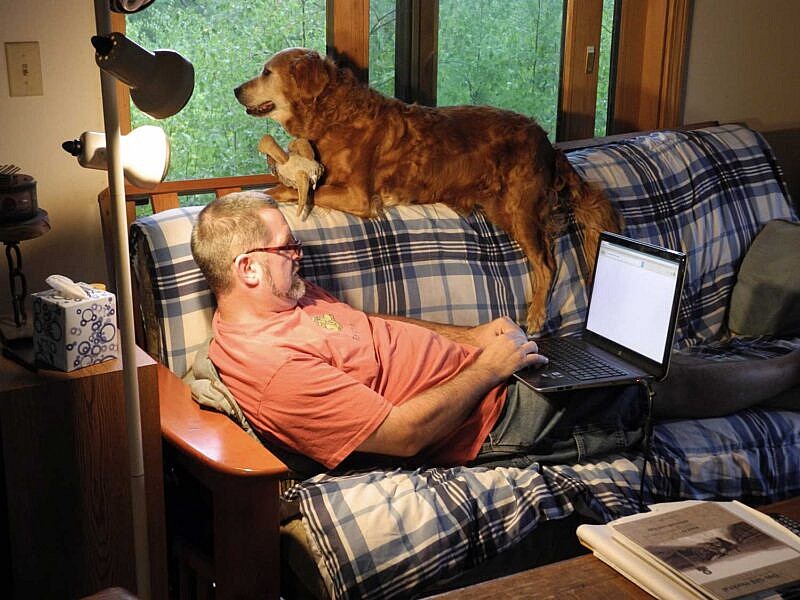
Then Mike becomes more thoughtful: “The real Swiss music, once played by immigrants in America, is dying out. That’s just it. In general, the Swiss culture in the US is disappearing - not just in Louisville, but also in Boston and New Hampshire, where I live, and everywhere. Many of the Swiss descendants are second, third and even fourth generation and they hardly understand Switzerland, do not speak the language, do not know the culture and music anymore. Only the yearning has remained…”
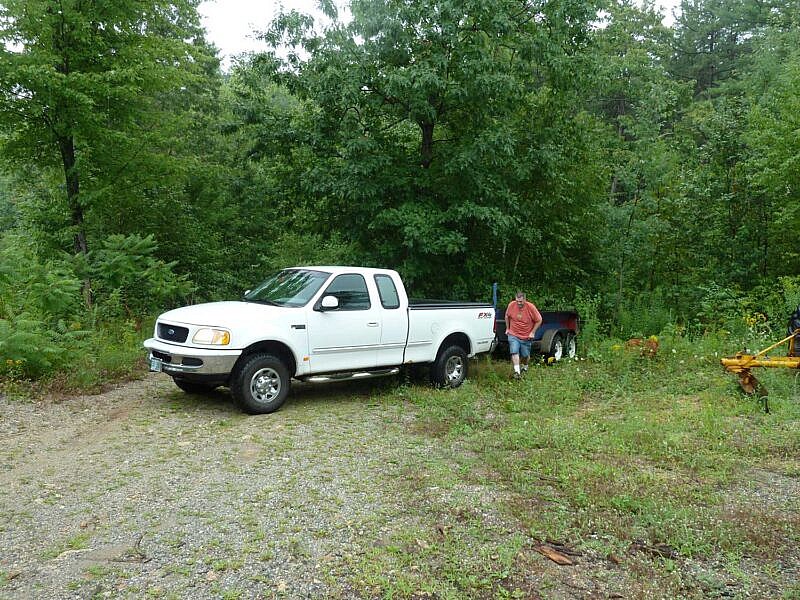
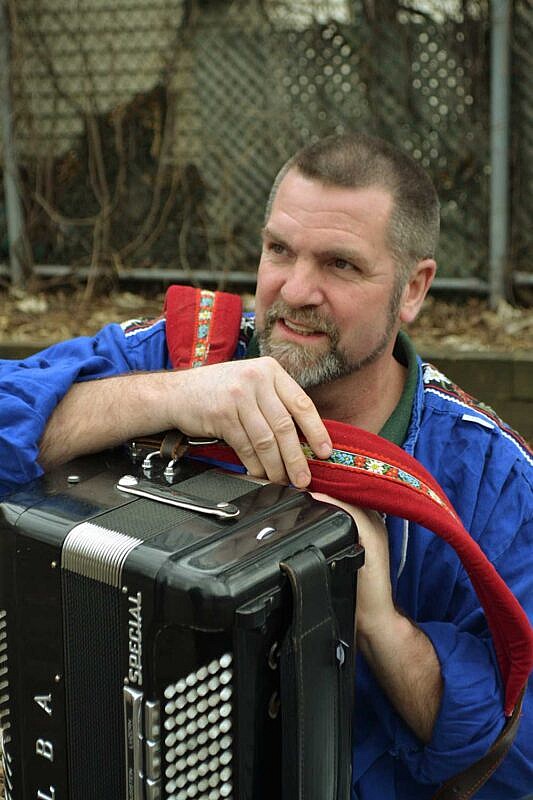
Mike Kaelin (*1959)
- Albert Anton (Andy) Kaelin (1890 – 1963) Louisville
- Anton (Andy) Jacob Kaelin (1860 – 1945), “Grundmärtels”, Willerzell; son of Joseph Isidor Kälin (1829 – 1879) and Anna Catharina Schönbächler (1836 – 1920) Willerzell.
- Anna Catharina Schoenbaechler (1866 – 1927) “Stöckgädlers”, Willerzell; daughter of Benedikt Schönbächler-Ruhstaller (1827 – 1878), Councilman, Willerzell, and of Barbara Schönbächler-Ruhstaller (1830 – 1914)

